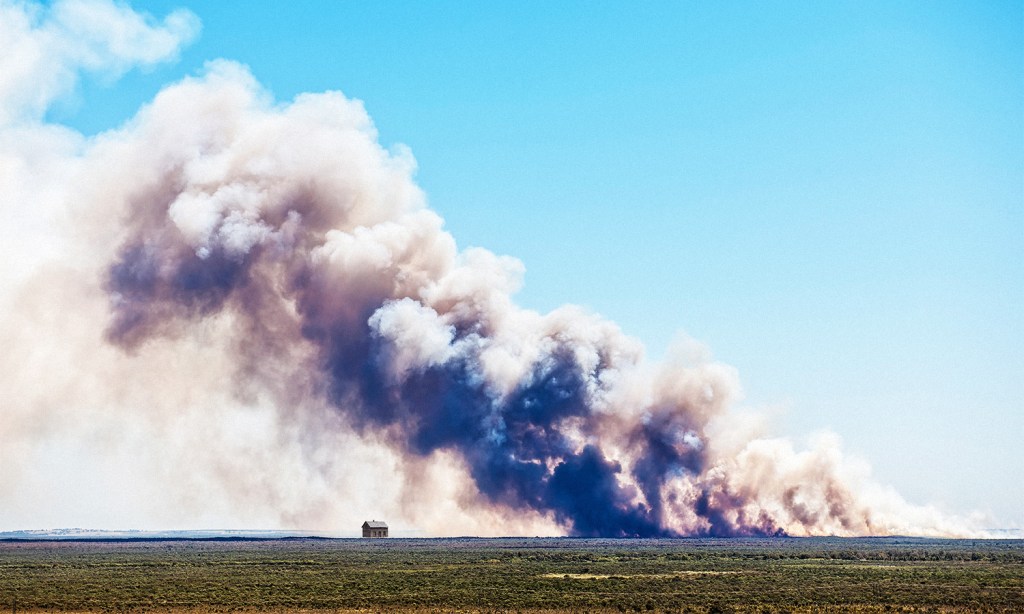New research by the Climate Council has captured what we all know to be true: frequent and intense climate disasters are taking a serious toll on our mental health.
The survey, conducted in partnership with the mental health charity Beyond Blue found that, since 2019, the vast majority of Australians (80%) had experienced at least one heatwave, flood, bushfire, drought, cyclone, or landslide, according to a representative sample of 2,032 people.
Half of the respondents reported that their mental health had been detrimentally affected by the extreme weather event they experienced, with one in five reporting a major or moderate impact.
A follow-up community-level survey with people who had experienced a disaster found that the most common mental health symptoms were anxiety, followed by depression and PTSD.
More than one-third of those surveyed said that there was too little mental health support available to them when they sought it out. This does not chime well with the recent cuts the government has made to free psychology sessions.
“The results of this poll are confronting,” said Climate Councillor and scientist at Australian National University, Dr Joelle Gergis.
“It’s heartbreaking to realise that many Australians are living with significant levels of distress related to the reality of our changing climate. It shines a light on this invisible mental health crisis that is undermining the stability of our local communities all over the country. We need to have a national conversation about climate change adaptation and listen to the experiences of people who have lived through these disasters.
“Extreme weather events are going to escalate as our planet continues to warm, so the impacts we have witnessed in recent years are really just the tip of the iceberg. We urgently need to develop plans that protect and support our local communities as climate change-fuelled disasters continue to upend the lives of countless Australians.”
Beyond Blue’s Lead Clinical Advisor, Associate Professor Grant Blashki — who supported the development of the survey — added: “It’s clear that climate change is not just a physical threat, but a mental health threat as well. And yet, despite the high levels of need, many people affected by climate disasters find it difficult to access the mental health assistance they need.
“By acknowledging and addressing the mental health impacts of climate change, we can build stronger and more resilient communities, better able to weather the storms — both literal and figurative — that lie ahead. It’s time to put the mental well-being of our communities front and centre as we respond to the public health challenges of climate change.”
The report found, unsurprisingly, that people living in rural areas were much more likely to have experienced a natural disaster, like flooding or fires, than those living in urban areas. As a result, the subsequent impact on their mental health is thought to have been more significant. These people are also much more likely to say that mental health support is inadequate or unavailable in the wake of such disasters.
One respondent in the Northern Rivers region of NSW, which was hit with successive catastrophic floods last year, reported that many locals simply cannot handle another round of flooding. If it happens again, many are likely to move, they said.
Another respondent in Queensland said that they were considering moving their family due to the impacts of climate change in the area.
“We are worried for the future our daughter will inherit,” they said.
Associate Professor has called for a strengthening of mental health services in response to the findings and the predictions that climate disasters will only get worse.
“This involves the whole system approach rather than piecemeal band-aid approaches during a crisis. We need to prepare the mental health system for early support of those affected, and co-opt a more diverse workforce, from local mental health first aid all the way through to highly specialised mental health care,” he said.
“It’s important we get on top of these issues early and get people the appropriate support at the right time.”
Related: No Right to Protest: What Are the New Anti-Protest Laws Being Used to Lock Up Climate Activists?
Related: In Non-Depressing Climate News, Brazil’s New Leader Could Save the Amazon Rainforest
Read more stories from The Latch and subscribe to our email newsletter.

